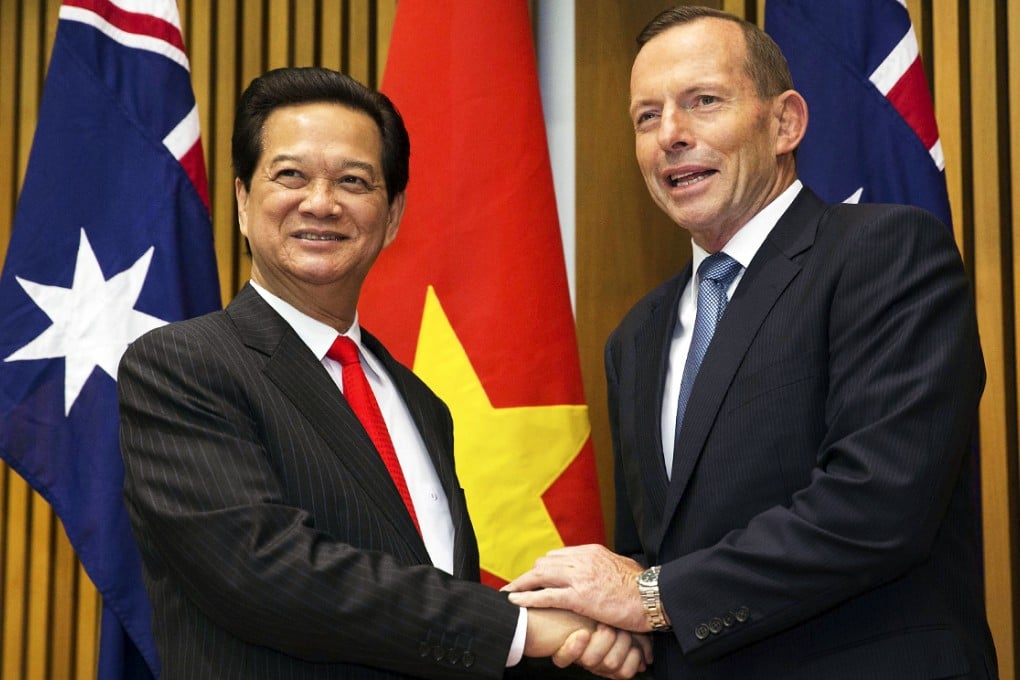Vietnam, Australia call for ‘self-restraint’, warn against force in South China Sea
Hanoi calls for code of conduct in disputed waters, while US vice-admiral suggests forming an Asean maritime patrol force

Vietnam and Australia today called for “self-restraint” in the South China Sea and warned against the unilateral use of force – an obvious reference to China’s increasingly aggressive presence that has stirred concerns across the disputed region.
Vietnamese Prime Minister Nguyen Tan Dung – who met Australian counterpart Tony Abbott in Canberra to sign deals on security, climate change and others – told the Australian parliament there was an imperative need to draw up a code of conduct for the South China Sea.
“We agreed ... [to] exercise self-restraint and refrain from actions that may escalate the tension in the region, including the use of force to unilaterally change the status quo,” Dung said.
We both support freedom of navigation by air and by sea in the South China Sea. We both deplore any unilateral change to the status quo
Vietnam and other wary Southeast Asian countries have complained about China’s controversial policy of land reclamation on disputed isles in the South China Sea. Beijing in turn has said it is not seeking to overturn international order.
China claims about 90 per cent of the South China Sea, displaying its reach on official maps with a so-called nine-dash dotted line that stretches deep into the maritime heart of Southeast Asia.
Vietnam, the Philippines, Malaysia, Brunei and Taiwan also have claims to parts of the potentially energy-rich waters that are crossed by key global shipping lanes.
This came as a top US navy official urged Southeast Asian nations to form a combined maritime force to patrol the disputed waters.
Last week, China expressed its anger at the Vietnamese head of the Association of Southeast Asian Nations (Asean) for comments he made on the disputed South China Sea, rejecting Chinese claims based on the nine-dash line.